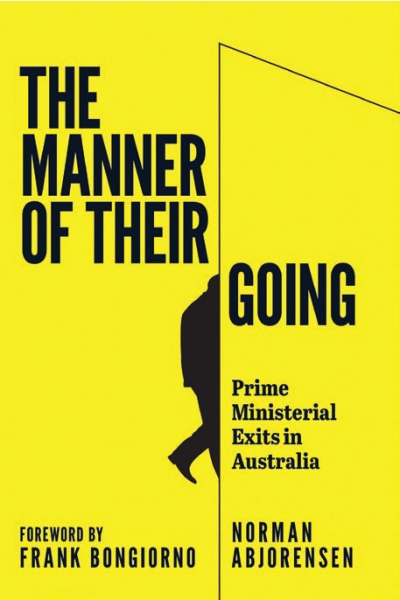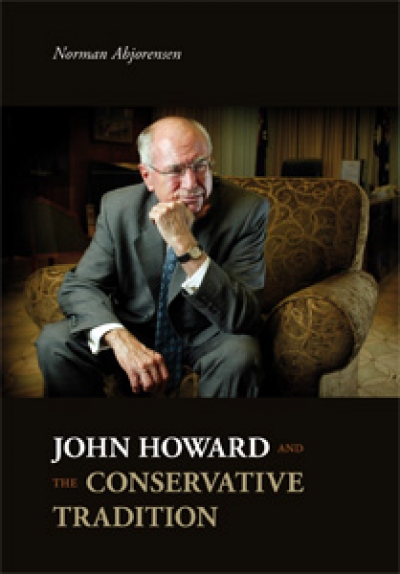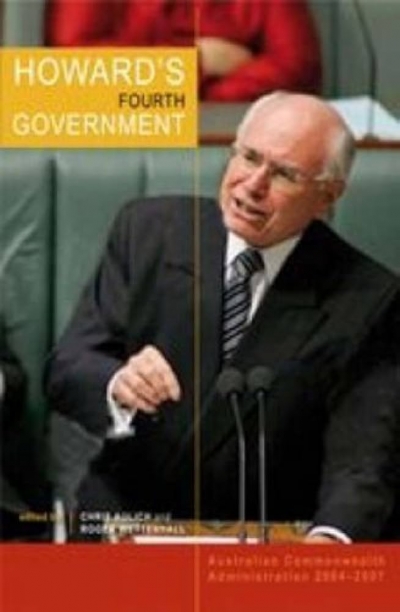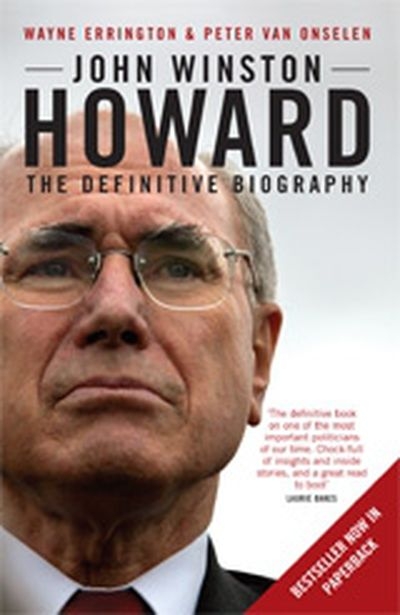Norman Abjorensen
The Manner of Their Going: Prime ministerial exits in Australia by Norman Abjorensen
by Lyndon Megarrity •
Dear Editor,
This is a note to congratulate you on the quality of the latest Calibre Prize essays, by Jane Goodall and Kevin Brophy, in the April edition of ABR. The two pieces maintain the incredibly high standards of the Prize, of which I was honoured to be an inaugural judge.
... (read more)DIAMETRIC OPPOSITES
Dear Editor,
I concur with Daniel Thomas’s high opinion of the collection of Eva and Marc Besen and of their TarraWarra Museum, and share his admiration of the essays by Christopher Heathcote and Sarah Thomas in his review of Encounters with Australian Modern Art (February 2009).
...John Howard and the Conservative Tradition by Norman Abjorensen
by Judith Brett •
Liberals and Power: The road ahead by Peter van Onselen
by Norman Abjorensen •
Howard’s Fourth Government by Chris Aulich and Roger Wettenhall (eds) & Inside Kevin 07 by Christine Jackman
by Norman Abjorensen •
Leadership And The Liberal Revival: Bolte, Askin and the post-war ascendancy by Norman Abjorensen
by Don Aitkin •
John Winston Howard: The biography by Wayne Errington and Peter van Onselen
by Norman Abjorensen •
Silencing Dissent: How the Australian government is controlling public opinion and stifling debate edited by Clive Hamilton and Sarah Maddison
by Norman Abjorensen •






